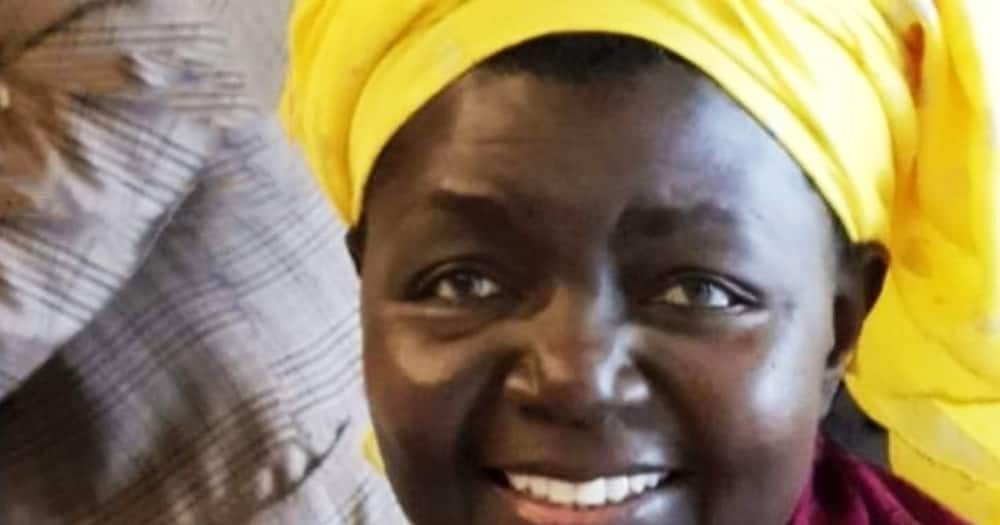Rosemary Alakie Mboya. PHOTO | COURTESY
The recent death in Nairobi of Rosemary Akinyi-Alakie Mboya after a four-year battle with breast cancer is a big loss to the family of the former freedom fighter, trade unionist and mercurial Cabinet minister, Thomas Joseph Mboya, and the Kenyan theatre fraternity and fans.
A spitting image of her father, Alakie, who was born in 1953, was a thespian of repute, who for many years showcased her talent on stage mainly in Nairobi from the late 1970s.
She was in the 1980s one of the key players in the production of seminal plays at the Kenya National Theatre (KNT) near the Norfolk Hotel and the then Voice of Kenya, which later became the Kenya Broadcasting Corporation (KBC). Those days, the place throbbed with creativity, and all the big names in Kenyan theatre arts and film have been on its vast stage to display their prowess.
The very first child of the man, who was popularly known as TJ, and who was assassinated in July 1969, Alakie was like everybody else in her family, thrust into the national limelight by that brutal daylight murder in the afternoon that sparked ethnic conflict, driving the country to the edge.
Mboya had been a key and loyal ally of the founding President, Mzee Jomo Kenyatta, but was always viewed with suspicion by some members of the Head of State’s court.
Though she was the child of Mboya’s first wife, Margaret Ogweno, Alakie was brought up by her stepmother, Pamela Odede Mboya, alongside her siblings. She had a good education and eventually became a banker, but theatre remained her first love over the years.
Even after she met and married a simple man known as Matthews Owuor, who was a member of the Legio Maria African traditional church sect, and shed some of her stylish fashion for the religious gowns, Alakie never turned her back on theatre.
She would later retire from her job with the Standard Chartered Bank in Nairobi in the 1990s and went on to fully support her husband in running their church’s affairs, often operating from the Legio Maria’s city branch at Makongeni, off Jogoo Road in Nairobi. She is credited with documenting vital information about the church’s founding in the early 1960s.
She lived at Donholm in the Eastlands with her husband. Alakie died on December 7, with the news broken on Facebook, but rather surprisingly not picked up by the mainstream media until many days later.
The daughter of one of the country’s greatest sons, Alakie will be buried at her husband’s family home in Kano, Kisumu County, on December 22, bringing the curtain down on a woman who summoned the best of her abilities to confront family and social obstacles in her life.
With the sadness of losing her father now in the background, the immensely talented thespian saw and seized an opportunity to show Kenyans what she was made of.
She would later grab national attention when she wrote, directed and acted in a musical play entitled Otongolia in 1985. It was about African women and their common obsession with using Western make-up to enhance their beauty.

During her stint at the KBC from the 1980s, Alakie Mboya was deeply involved in promoting theatre and spent many hours at the KNT. When Otongolia was performed for the first time to much acclaim, she acted as the main character.
Alakie at one point worked with the Voice of Kenya (KBC), as a theatre director.
In 2012, she was in the team behind the production of Kenya’s first opera, Ondiek the Fisherman, which took off with aplomb at the Braeburn Theatre in Nairobi on Friday, April 20. The production was a real showcase of Kenyan talent, with Alakie Mboya-Owuor as the director.
In her prime in 1976, Alakie, teaming up with Kenyan film actor Oliver Litondo, co-produced and staged The Muntu by Ghanaian writer, playwright, and dramatist Joe de Graft at the Kenya National Theatre. It starred Litondo and Beldina Auma.
Alakie, who was 69, was just like her lookalike father, known for her warmth and generosity and commitment to assisting the poor and other people in need.
Her sister, Pamela Obonyo, says Alakie was a good story- teller, a teacher and counsellor, who will be missed by many of the people that she interacted with.
Tom Mboya, who became a Cabinet minister at independence in 1964, was serving as the Minister for Economic Planning and Development when he was cut down by an assassin’s bullet outside Channis Pharmacy on the then Government Road (today’s Moi Avenue) in downtown Nairobi.
The play, Otongolia, will remain Alakie’s single biggest contribution to the development of Kenyan theatre and an apt reference to the vibrant 1980s society, depicting the socio-cultural challenges and developments of the time.
jaywanyama22@gmail.com




